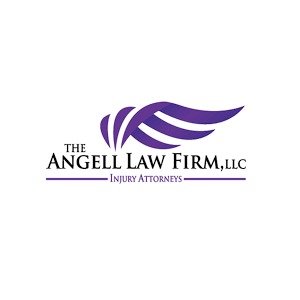Best Toxic Mold Lawyers in Destin
Share your needs with us, get contacted by law firms.
Free. Takes 2 min.
List of the best lawyers in Destin, United States
About Toxic Mold Law in Destin, United States
Toxic mold law in Destin falls within the broader legal category of premises liability. This means if a property owner is aware of the condition or should reasonably be aware of the condition, such as toxic mold, and fails to remedy it, they could be held liable for damages resulting from exposure to toxic mold. Signs of mold could include visible patches, a musty smell, or water damage. Toxic mold can cause severe allergic reactions and health issues like respiratory problems or neurological damage.
Why You May Need a Lawyer
If you suspect harmful exposure to toxic mold in your home, workplace, or rented accommodation, you might need to hire a lawyer. You might be relocating from your property due to mold infection and in need of compensation from your landlord or property manager. Additionally, if you or any of your family members have suffered health issues due to mold exposure, a lawyer could help you secure financial compensation for your medical expenses, pain, and suffering. Remember, in such cases, you need to prove the owner's negligence, which requires a substantial understanding of the local laws which can be complex to navigate without professional help.
Local Laws Overview
In the state of Florida, where Destin is located, the Residential Landlord and Tenant Act does not specifically mention mold. However, landlords are required to comply with applicable building, housing, and health codes. These codes include maintaining the structural components and plumbing in a safe condition. A negligent property owner might violate these regulations if they fail to remedy a water leak, leading to mold growth. It's advisable to consult a legal professional to understand these laws and how they apply to your situation.
Frequently Asked Questions
What are signs of toxic mold?
Signs of toxic mold can include visible mold growth, discoloration, musty smell, water damage, chipping paint, or dampness. Symptoms of exposure can range from allergies to severe health issues like constant coughing, wheezing, skin irritation, and in severe cases, memory loss or mood changes.
Can I clean the mold myself?
While minor mold issues can indeed be handled by a resident, professional help is highly recommended for extensive mold contamination. It is essential to solve the problem at its root, such as fixing water leaks, to prevent the mold from reoccurring.
Who is responsible for mold contamination?
To pinpoint who is responsible for mold contamination can involve complex legal interpretations. If the property owner neglected maintenance causing water damage and subsequent mold infestation, they might be held responsible. Whereas, if the inhabitant caused the damage leading to the mold issue, they might bear the responsibility.
What is the time limit to file a mold claim in Florida?
The statute of limitations for filing a property damage claim in Florida is four years from the date when the damage appears. Consulting a lawyer as soon as you suspect mold damage is crucial to ensure you file your claim within these time constraints.
What kind of damages can be awarded in a toxic mold case?
Depending on the case, you may be eligible for compensation for property damage, replacement costs, remediation costs, medical expenses, pain and suffering, or even punitive damages if the neglect was gross.
Additional Resources
There are several resources available for people dealing with toxic mold issues. The Florida Department of Health provides information about the health hazards of mold exposure and how to get rid of mold. The United States Environmental Protection Agency (EPA) offers guidelines for mold remediation in schools and commercial buildings which can also be helpful. Victims of toxic mold can also reach out to their local health department for advice and resources.
Next Steps
If you believe you have a toxic mold issue, reach out to a healthcare professional to address any health concerns first. Document any evidence of mold in your property and any related damage or health issues. Consult with a lawyer who specializes in premise liability or personal injury to understand your rights and how to proceed with your case. It is essential to act promptly to ensure your claim is filed within the legal time limits.
Lawzana helps you find the best lawyers and law firms in Destin through a curated and pre-screened list of qualified legal professionals. Our platform offers rankings and detailed profiles of attorneys and law firms, allowing you to compare based on practice areas, including Toxic Mold, experience, and client feedback.
Each profile includes a description of the firm's areas of practice, client reviews, team members and partners, year of establishment, spoken languages, office locations, contact information, social media presence, and any published articles or resources. Most firms on our platform speak English and are experienced in both local and international legal matters.
Get a quote from top-rated law firms in Destin, United States — quickly, securely, and without unnecessary hassle.
Disclaimer:
The information provided on this page is for general informational purposes only and does not constitute legal advice. While we strive to ensure the accuracy and relevance of the content, legal information may change over time, and interpretations of the law can vary. You should always consult with a qualified legal professional for advice specific to your situation.
We disclaim all liability for actions taken or not taken based on the content of this page. If you believe any information is incorrect or outdated, please contact us, and we will review and update it where appropriate.








